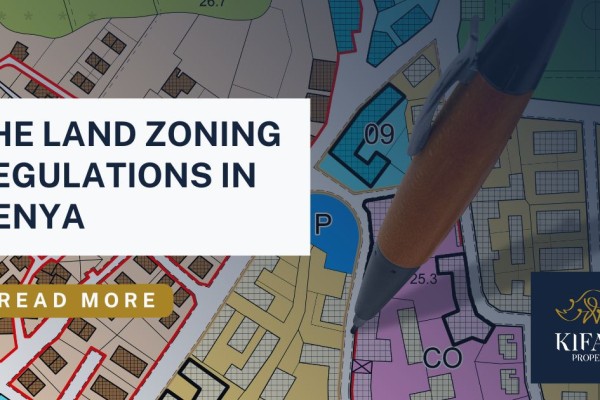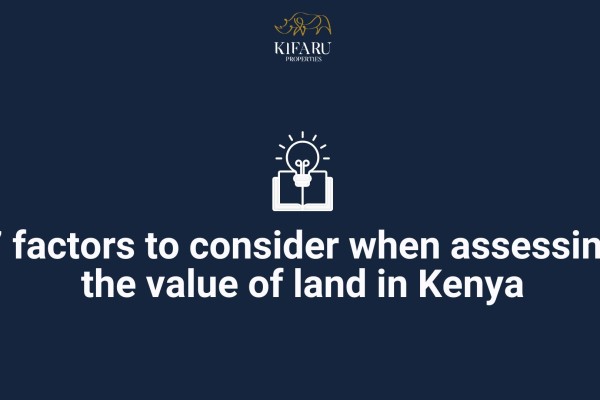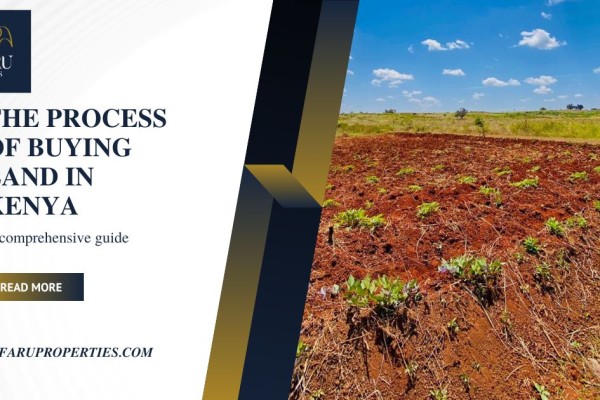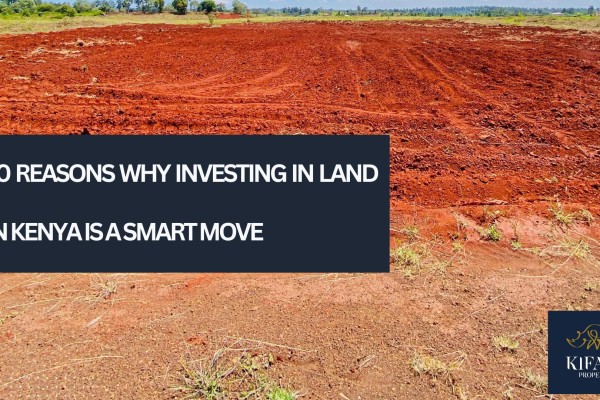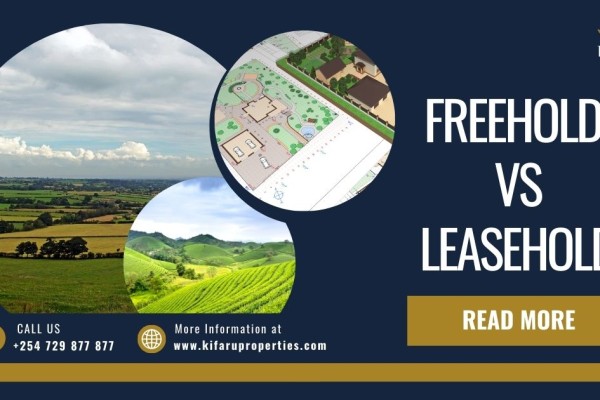- Jan 08, 2025
- Kifaru Meadows
- 333

1. Growing Urbanization and Infrastructure Development
Kenya’s urbanization rate is on the rise, driven by a burgeoning middle class and expanding cities. With infrastructure projects such as the Nairobi Expressway, the expansion of highways, and ongoing upgrades to commuter rail networks, land near key urban centers is becoming more accessible and valuable. Locations like Ruiru, Kitengela, and Athi River are seeing unprecedented growth due to their proximity to Nairobi and enhanced connectivity.
Investing now allows you to capitalize on areas poised for future growth. As infrastructure improves, the value of land in these regions will continue to appreciate, ensuring a robust return on investment.
2. Stable and Favorable Market Conditions
The Kenyan real estate market has rebounded strongly from the challenges of the pandemic years. With inflation rates stabilizing and interest rates on loans remaining competitive, financing land purchases is more accessible. Additionally, 2025 is expected to see steady land prices, making it an ideal time to buy before a potential surge driven by increased demand.
3. Government Support for Affordable Housing
The Kenyan government’s affordable housing agenda under the Big Four Agenda is stimulating the real estate sector. Policies that promote home ownership and incentivize developers to build in emerging areas create ripple effects in the land market. Buyers benefit from a favorable regulatory environment, improved infrastructure, and accessible financing options that make acquiring land more attractive.
4. Increased Demand for Gated Communities and Controlled Developments
There is a growing preference for controlled residential developments and gated communities among middle and upper-income buyers. These developments offer security, planned amenities, and community living—features highly sought after in today’s real estate market. Projects like Kifaru Meadows in Ruiru epitomize this trend, combining affordability, strategic location, and modern planning. Buying land in such developments not only ensures immediate value but also guarantees a high resale or rental potential in the future.
5. Diversification of Investment Portfolios
Land remains one of the most stable and resilient investment options in Kenya. In 2025, savvy investors are looking to diversify their portfolios amidst global economic uncertainties. Land in Kenya, especially in rapidly growing areas, provides a hedge against inflation and currency fluctuations, making it a reliable store of value.
6. Flexible Payment Plans and Discounts
Many developers are offering flexible payment plans and discounts in 2025 to attract buyers. For instance, buyers of plots at Kifaru Meadows can benefit from discounted prices and installment options that make land ownership attainable for a wider demographic. These offers reduce the financial burden, enabling more Kenyans to step into property ownership.
7. Legacy and Security for Future Generations
Owning land is more than a financial decision; it’s a legacy. By buying land in 2025, you secure your future and that of your family. As land becomes scarcer and more expensive in the coming years, today’s purchase will serve as an invaluable asset for generations.
Conclusion
The year 2025 presents an unmatched opportunity to invest in Kenyan land. With favorable market conditions, government incentives, and a strong focus on infrastructure development, the potential for appreciation is immense. Whether you’re looking to build your dream home, invest in a profitable venture, or secure a legacy, the time to act is now. Don’t wait until prices skyrocket—start your journey to land ownership in 2025 and enjoy the rewards for years to come.
